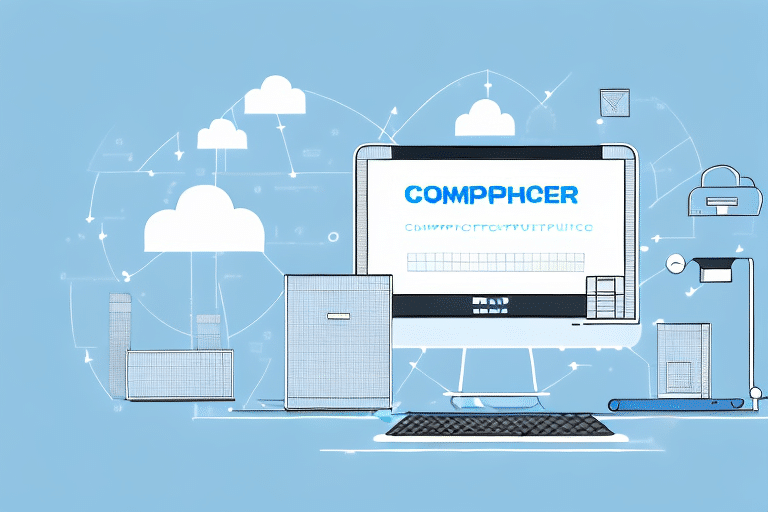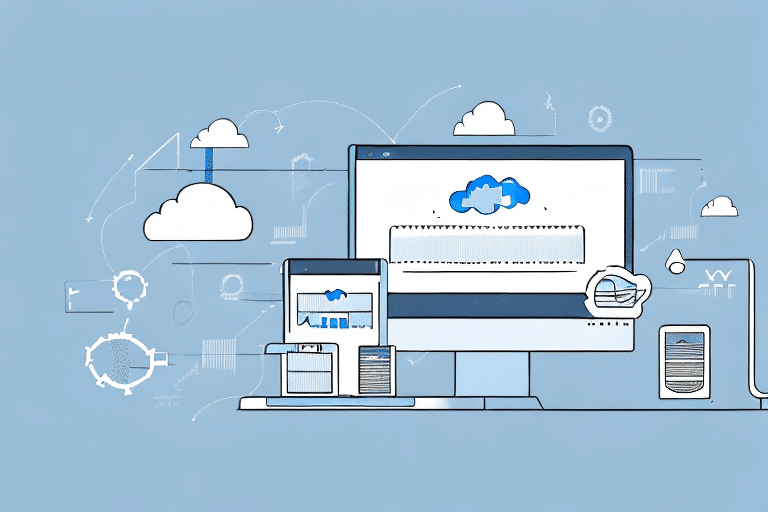Understanding LSO and Its Importance in Infor CloudSuite WMS
Location Sequence Optimization (LSO) is a critical feature within Infor CloudSuite Warehouse Management System (WMS) that enhances operational efficiency by optimizing the sequence in which putaway and picking tasks are executed. By determining the most efficient path for workers to complete tasks, LSO minimizes travel time, reduces the number of steps required, and prioritizes tasks in the most effective order. These optimizations lead to lower labor costs and increased productivity.
LSO is especially beneficial for warehouses that handle a high volume of orders or manage a vast number of SKUs. Without LSO, workers might spend excessive time moving between locations or executing tasks inefficiently, resulting in higher labor expenses and reduced operational throughput. Infor CloudSuite WMS leverages advanced LSO capabilities to help warehouse managers streamline operations and achieve maximum efficiency.
Connecting and Integrating LSO with Infor CloudSuite WMS
Integrating LSO with Infor CloudSuite WMS is straightforward. To begin, navigate to the Sites Configuration screen and select WMS Settings. Here, you can enable LSO for your warehouse and configure key parameters such as travel time, start time, and end time, tailored to your warehouse’s specific needs. This setup ensures that LSO can effectively schedule tasks like putaway, picking, and replenishment.
Step-by-Step Connection Guide
- Access the Infor CloudSuite WMS interface.
- Navigate to Sites Configuration.
- Select WMS Settings.
- Enable the Location Sequence Optimization feature.
- Configure LSO parameters such as travel time, operational hours, and task prioritization.
- Save the settings and deploy LSO within your warehouse operations.
Additionally, Infor CloudSuite WMS offers seamless integration with other warehouse management systems through its open API and flexible technology infrastructure. This enables warehouse managers to connect LSO with systems for inventory management, order processing, and shipping, providing a cohesive and optimized operational environment.
Optimizing and Managing LSO Performance
To maximize the benefits of LSO in Infor CloudSuite WMS, it's essential to continuously optimize and manage its performance. Here are key strategies to achieve this:
Real-Time Data Collection
Investing in real-time data collection ensures that LSO calculations are based on the most current information. This accuracy is vital for making effective scheduling decisions and maintaining operational efficiency.
Utilizing Analytics
Infor CloudSuite WMS offers robust analytics tools that allow warehouse managers to monitor LSO performance, identify trends, and pinpoint areas needing improvement. Regular analysis of LSO data helps in making informed adjustments to enhance performance.
Adjusting LSO Parameters
Regularly reviewing and fine-tuning LSO parameters, such as travel times and task priorities, can lead to significant improvements in warehouse efficiency. Adapting these settings based on operational changes ensures that LSO remains aligned with warehouse objectives.
Best Practices for LSO Management
Implementing best practices in managing LSO can lead to substantial gains in warehouse productivity and accuracy.
Employee Training
Training warehouse staff on how to effectively use LSO features is crucial. Employees should understand how LSO optimizes their tasks and the benefits it brings to both their workflow and the warehouse operations.
Regular Performance Monitoring
Consistently monitoring LSO performance and making necessary adjustments ensures that the system operates at peak efficiency. Utilize analytics to track key performance indicators and identify improvement opportunities.
Maintaining Data Accuracy
Accurate data input is fundamental for LSO effectiveness. Implement rigorous data validation and regular audits to maintain the integrity of the information used by LSO.
Staying Updated with Algorithm Enhancements
Keeping the LSO algorithm up-to-date with the latest enhancements and relevant data ensures that it continues to deliver optimal results. Regular updates can incorporate new operational insights and technological advancements.
Troubleshooting Common LSO Issues
While LSO significantly improves warehouse operations, challenges may arise. Being prepared to troubleshoot common issues is essential for maintaining seamless operations.
Inaccurate Calculations
Data entry errors can lead to inaccurate LSO calculations. To mitigate this, provide comprehensive training for staff on accurate data entry and conduct regular data audits to identify and correct discrepancies promptly.
System Performance Issues
Slow system response times can disrupt order processing and inventory management. Monitor system performance continuously, identify bottlenecks, and consider hardware or software upgrades to improve responsiveness.
Integration Problems
Issues with system integrations can hinder LSO functionality. Ensure that all integrated systems are compatible and regularly update APIs to maintain seamless communication between systems.
Dataset Issues
Incomplete or outdated datasets can compromise LSO efficiency. Maintain comprehensive and current datasets by implementing automated data synchronization and regular reviews.
In cases where issues persist, consult Infor support or engage professional services to address and resolve complex LSO challenges.
Benefits of LSO in Warehouse Management
Implementing LSO in Infor CloudSuite WMS offers numerous advantages that enhance overall warehouse performance.
Increased Efficiency and Productivity
LSO optimizes task sequencing, which reduces travel time and minimizes wasted effort. For instance, a logistics company reported a 30% reduction in order fulfillment time after implementing LSO technology.
Cost Savings
By optimizing labor deployment, LSO can significantly lower labor costs. An example includes a large retailer who achieved a 20% reduction in cycle times and a 50% increase in inventory turnover through effective LSO integration.
Enhanced Accuracy
LSO improves the accuracy of order fulfillment by minimizing human error, leading to fewer discrepancies and higher customer satisfaction rates.
Improved Inventory Management
With real-time inventory tracking enabled by LSO, warehouses can maintain optimal stock levels, preventing overstocking and stockouts. This not only saves costs but also ensures timely order fulfillment.
Real-Life Success Stories
Numerous organizations have successfully implemented LSO with Infor CloudSuite WMS, witnessing substantial improvements in operational metrics. These success stories underscore the value of investing in LSO technology.
Real-Life Examples of Successful LSO Implementation
Practical implementations of LSO in various industries highlight its effectiveness in enhancing warehouse operations.
Retail Sector
A major retailer integrated LSO with Infor CloudSuite WMS across multiple warehouses, resulting in a 20% reduction in cycle times and a 50% increase in inventory turnover. These improvements led to faster order processing and better inventory utilization.
Logistics Industry
A logistics company adopted LSO technology to streamline their order fulfillment process. Post-implementation, they achieved a 30% decrease in fulfillment time, enhancing their service levels and customer satisfaction.
Manufacturing Warehouses
Manufacturing warehouses utilizing LSO experienced improved task accuracy and reduced labor costs, enabling them to meet production schedules more effectively and maintain high service standards.
The Future of LSO Technology and Its Impact on Infor CloudSuite WMS
The future of LSO technology is promising, with advancements poised to further enhance warehouse management systems like Infor CloudSuite WMS.
Integration with IoT and Robotics
Advances in the Internet of Things (IoT) and robotics are expected to augment LSO capabilities, enabling more precise task tracking and automation, which will further reduce manual intervention and improve efficiency.
Predictive Analytics
Incorporating predictive analytics into LSO can forecast demand patterns, enabling proactive adjustments to warehouse operations and inventory management.
Enhanced User Interfaces
Future LSO systems will offer more intuitive user interfaces, making it easier for warehouse staff to interact with the system and leverage its full potential.
As these technologies evolve, Infor CloudSuite WMS will continue to integrate and extend its LSO features, ensuring that warehouses can meet the growing demands of modern supply chains with greater agility and efficiency.








